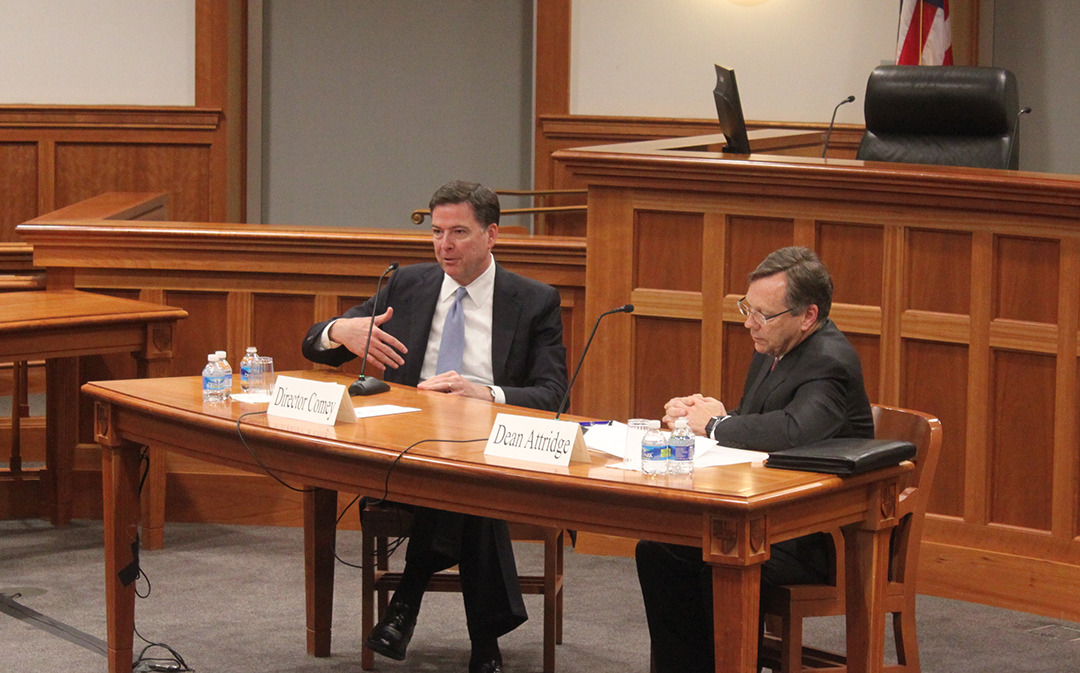

“I want you to love somebody. You can convince yourself you’ll ‘get back’ to your loved ones. There’s no ‘getting back.’ Bad things do happen. You turn around to look back and they won’t be there.”
This was sobering advice offered to students at the Columbus School of Law by James B. Comey Jr., director of the FBI.
If a person simply lives forward (for the bigger house, the next promotion, the next life step), “You might miss the good,” he said. He told the students to imagine that they’re old and gray and looking back on their lives. “Ask yourself, who do you want to have been? Think about the answer to that question now and try to be that person now.”
Comey spoke with Daniel Attridge, dean of the law school, before a crowded Slowinski Courtroom on April 12 for the Brendan F. Brown Lecture Series.
Organized as a conversation between the dean and the director, the discussion covered topics including leadership, the recent controversy over privacy and public safety involving Apple, cybersecurity, and traits of a good lawyer.

The recent disputes between the FBI and Apple over privacy and public safety can’t really be resolved in courts, Comey said. “What I hope is, everyone will engage in the conversation,” he said. “It’s an incredibly hard conversation. It does not fit in a tweet. We have to find the space and time.”
On leadership, he said he pays more attention to “what you are like, not what you have done.” He hires leaders who can connect with people and truly listen. And leaders must have both “kindness and toughness; confidence and humility.”
“Kindness alone leads to unfulfilled potential.” People need leaders who are not only kind and reassuring, but who are also tough and who push them.
In talking about his own journey in leadership, Comey added, one lesson he learned is that one’s reputation is like a mansion. “Every single human encounter is a brick,” he said. While you can’t always control what is said about you, “You can control how you interact with people.”
Another mark of a great leader (and a good lawyer) is judgment. “Judgment is not the same as intelligence,” Comey said. “Intelligence is fairly common. Judgment is quite rare.”
In order to protect one’s sense of judgment, Comey said: Sleep.
“Judgment is protected and nurtured by stepping away from the work. Sleeping is not a moral failure,” he said. “You arise refreshed in a way that allows you to see your work in a new light.”